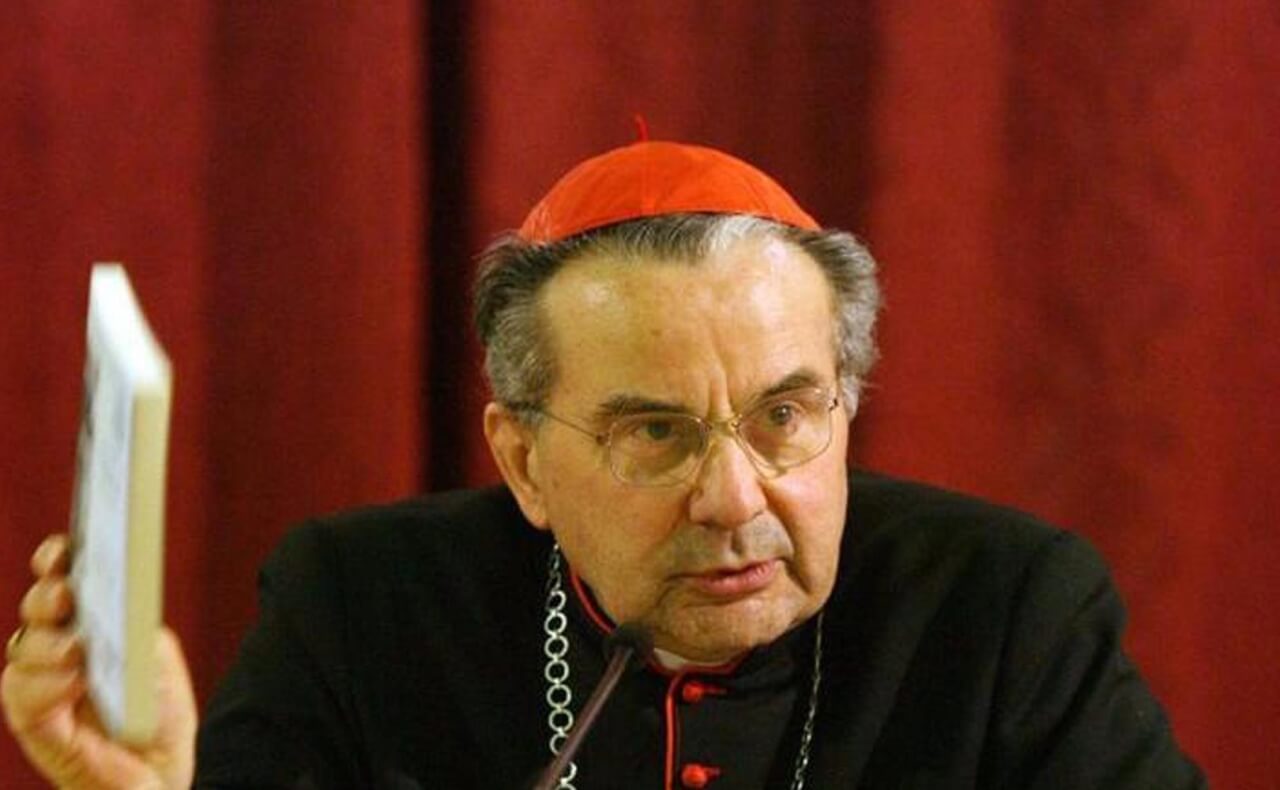Cardinal Raymond Burke has once again been forced to publicly correct the errors of Pope Francis, this time regarding his insistence that he only learned about objections to his apostolic exhortation Amoris Laetitia raised by some of the top prelates in the Church by reading about it in the news.
In an interview with Reuters that appeared yesterday, Pope Francis said that he had only learned of the theological dubia submitted by four cardinals — Raymond Burke, Joachim Meisner, Carlo Caffarra, and Walter Brandmüller — by reading about it “from the newspapers.” The pope then took a swing at the so-called “dubia cardinals,” saying their approach was “a way of doing things that is, let’s say, not ecclesial, but we all make mistakes.”
In remarks to OnePeterFive yesterday afternoon, Cardinal Brandmüller said “The dubia were first published after – I think it was two months – after the Pope did not even confirm their reception. It is very clear that we wrote directly to the Pope and at the same time to the Congregation for the Faith. What should be left that is unclear here?”
Now Cardinal Burke — the prelate many Catholics see as the de facto leader of the dubia cardinals — told John-Henry Westen of LifeSiteNews a different story, in a report published this morning. He insists that “The late Cardinal Carlo Caffarra personally delivered the letter containing the dubia to the Papal Residence, and at the same time to the Congregation for the Doctrine of the Faith, on September 19, 2016, as he also delivered subsequent correspondence of the four Cardinals regarding the dubia.”
Burke went on, “During the entire time since the presentation of the dubia, there has never been a question about the fact that they were presented to the Holy Father, according to the practice of the Church and with full respect for his office.”
Burke again offered the benefit of the doubt to Francis at a time many Catholics have grown weary of a scandal-plagued pontificate often perceived as untruthful, saying that “Pope Francis must not have understood” the question presented to him by the journalist.
The American cardinal also insisted that there was nothing irregular or mistaken in their use of theological dubia as regards Amoris Laetitia. “The presentation of the dubia to the Holy Father was done according to the long-standing practice of the Church, that is, they were presented to the Holy Father without any publication, in order that he could answer them for the good of the whole Church.” It was only after “several weeks,” said Burke, when “there was no acknowledgement of the dubia or response to them” that the cardinals who had submitted their questions decided to publish them, inasmuch as they were “obliged, in conscience” to do so.
Nearly two years after they were first submitted, the dubia have not been answered by the pope, nor has an audience been granted to those who submitted them despite requests. Two of the original four cardinals — Meisner and Caffarra — died without ever having so much as an acknowledgement by the pope of their concerns. Some commentators have noted that the Reuters interview appears to be the first time the pope has even acknowledged the existence of the dubia in public.
Not discussed by Cardinal Burke in his comments today was when, if ever, a formal correction of the pope — as he originally proposed in November of 2016, and outlined in further detail the following summer — would be made.


